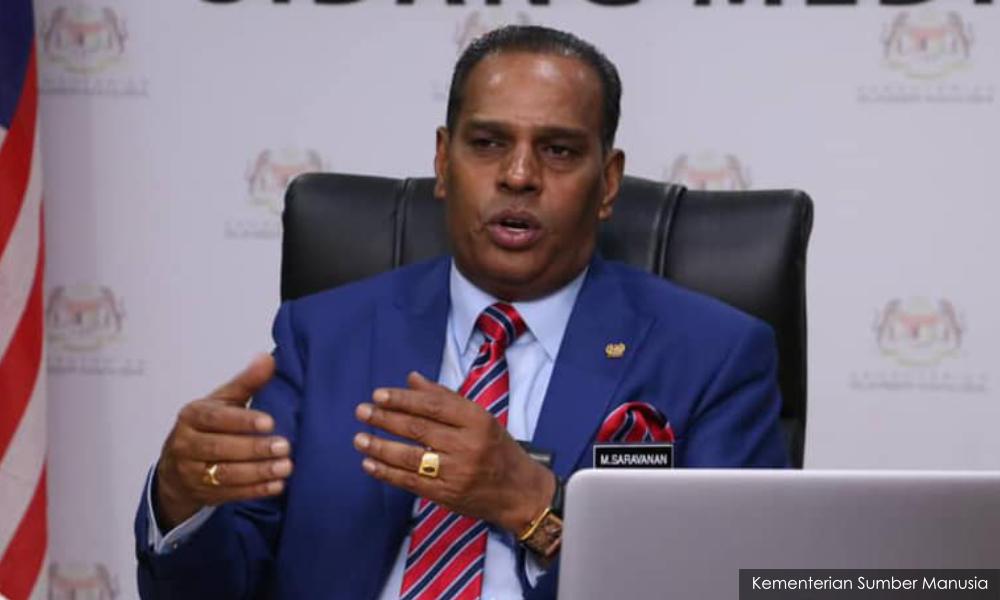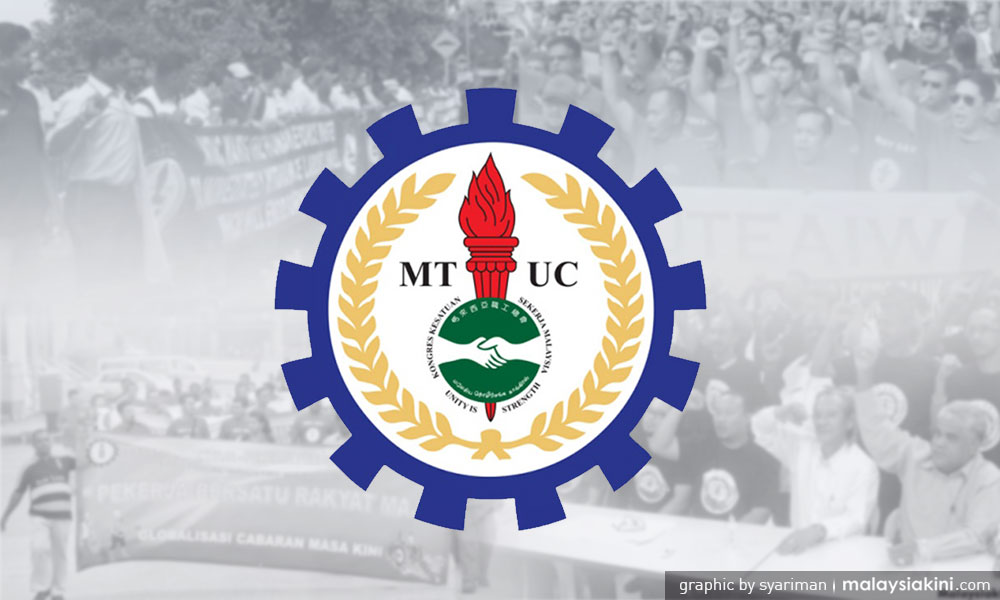The statement in response to many calls for the disclosure of the Memorandum of Understanding (MOU) on labour migration from Bangladesh to Malaysia by the Human Resource Minister M Saravanan questioning “when have MOUs ever been made public?”, was shockingly irresponsible, disappointing and unbecoming of a minister.
Even if Malaysia had not developed a National Action Plan on Forced Labour (NAPFL) 2021-2025, Saravanan’s flippant response yesterday reflected his poor understanding of his ministerial responsibility for accountability to the legislature (Parliament) and ultimately to the people.
He was also quoted by the news portal Free Malaysia Today as saying, “some people are taking a special interest (in the MOU). I don’t know why. Is there something more to this?”
This was a clear message to the world that the minister in charge of labour has very little interest in transparency in the management of labour migration, especially at a time when Malaysia is being scrutinised for its sincerity in curbing forced labour and human trafficking, particularly in major revenue-generating industries.
Saravanan’s noted confusion over why “some people” are taking a “special interest” denotes his lack of understanding of the ultimate purpose of the NAPFL and does little to assuage concerns building up among labour migration activists over the recruitment terms in the MOU.
Based on a sighted document that outlined the recruitment procedure, Malaysiakini reported yesterday that a list of 25 Bangladesh Recruitment Agents (BRAs) and 250 sub-agents are expected to be involved in recruiting new workers bound for Malaysia.
It also reported migrant workers’ rights specialist Andy Hall’s concerns that the lack of transparency in the recruitment process “risked a revival of past schemes that ultimately contributed to issues of debt bondage and labour exploitation.”

The NAPFL, to which Saravanan in his ministerial role is a signatory to, recognises in its Strategic Goal 4 the role of the media in “reaching out to workers” for its prioritised “interventions to strengthen the capacity to identify victims of forced labour”.
Therefore, it’s very disconcerting to note that the media are often easily rebuked for their persistence in carrying out their role to help Malaysia elevate its position from the bottom of the four-tiered Trafficking in Persons (TIP) Report as assessed by the US State Department.
In Annex 1 of the NAPFL by Result Matrix, under Matrix (Strategic Goal) No 3 on pages 66 and 67, the following is stated:
“Increase transparency and public access to bilateral agreements and MOUs, and provisions that protect migrant workers from forced labour, regulating recruitment agencies, awareness-raising to potential migrant workers as well as source countries’ responsibility in providing clear guidelines to prevent illegal payments or other payments by the workers in their country.”
The above “activity” was designed for the Strategic Goal to have strengthened recruitment practices by 2025.
Other activities under this Strategic Goal borrow from the National Action Plan on Anti-Trafficking in Persons (NAPTIP) 2021-2025, which requires the consultation of relevant stakeholders in the preparation for negotiations and the review of bilateral agreements or MOUs with source countries.
This Strategic Goal was designated to be implemented and coordinated by the NAPFL Technical Committee on Labour Migration.

Key members in the Labour Migration committee are the Malaysian Trades Union Congress (MTUC) and Malaysian Employers Federation (MEF), who will be able to best scrutinise current practices and advise accordingly.
Others who may join on an ad hoc basis are representatives from civil society organisations or international organisations whenever deemed necessary for any activity.
Government departments represented in this committee comprise the Ministry of Human Resources (MOHR) as chair, Ministry of Home Affairs (MOHA), Labour Department of Peninsular Malaysia (JTKSM) and Immigration Department (JIM).
This committee and the three other technical committees in the NAPFL will not be able to implement the activities in the action plan without access to documents like the labour recruitment MOU between Malaysia and Bangladesh.
Instead, it seems like Saravanan has the document under lock and key, like a top-secret strategic initiative or sensitive military equipment intelligence that could place the nation in peril if it was disclosed to the rest of the world.
His actions beg the question as to whether the minister is a hindrance to the successful attainment of all the NAPFL Strategic Goals.
There are 12 other Malaysian ministries that signed on the NAPFL, pledging their support and they are the Ministries of Works; Transport; Agriculture and Food Industries; Domestic Trade and Consumer Affairs; Women, Family and Community Development; Multimedia and Communications; the Prime Minister’s Department (Economy) and (Parliament and Law); Foreign Affairs; Plantation Industries and Commodities and Tourism, Arts and Culture.

These ministries, too, have an obligation to scrutinise the MOU and raise concerns if any or provide their expertise. However, their participation in the NAPFL thus far is unknown because of all the secrecy.
Meanwhile, MOHR is currently in negotiations with its Indonesian counterparts to finalise a new MOU on the recruitment and placement of domestic workers and costs borne by employers and fees paid to recruitment agencies are now highly debated issues.
Under the same Strategic Goal mentioned earlier, the NAPFL Labour Migration Committee is also tasked with the development of a clear national definition for recruitment fees and associated costs, including illegal payments and identifying employers’ responsibilities – all of which are to be published on the MOHR website.
This means the MOU negotiations should include members from the NAPFL Labour Migration Committee.
However, apart from a general statement by Saravanan yesterday on the progress of the negotiations, everything else about these discussions remains “top secret”.
The timely renewal of two MOUs when these national action plans come into force should help Malaysia put in place solid recruitment practices before the agreements are signed – the MOU with Bangladesh has been signed but a top JTKSM official revealed recently that the recruitment mechanism was not yet finalised.
The NAPFL and NAPTIP were designed to improve Malaysian industries’ low ranking, in best practices in supply chains, which should boost its trading capacity but if they remain as tools for government whitewashing, then the people will suffer the consequence of irresponsible governance. - Mkini
S VINOTHAA is an independent journalist who writes on women’s and workers’ issues.
The views expressed here are those of the author/contributor and do not necessarily represent the views of MMKtT.




No comments:
Post a Comment
Note: Only a member of this blog may post a comment.